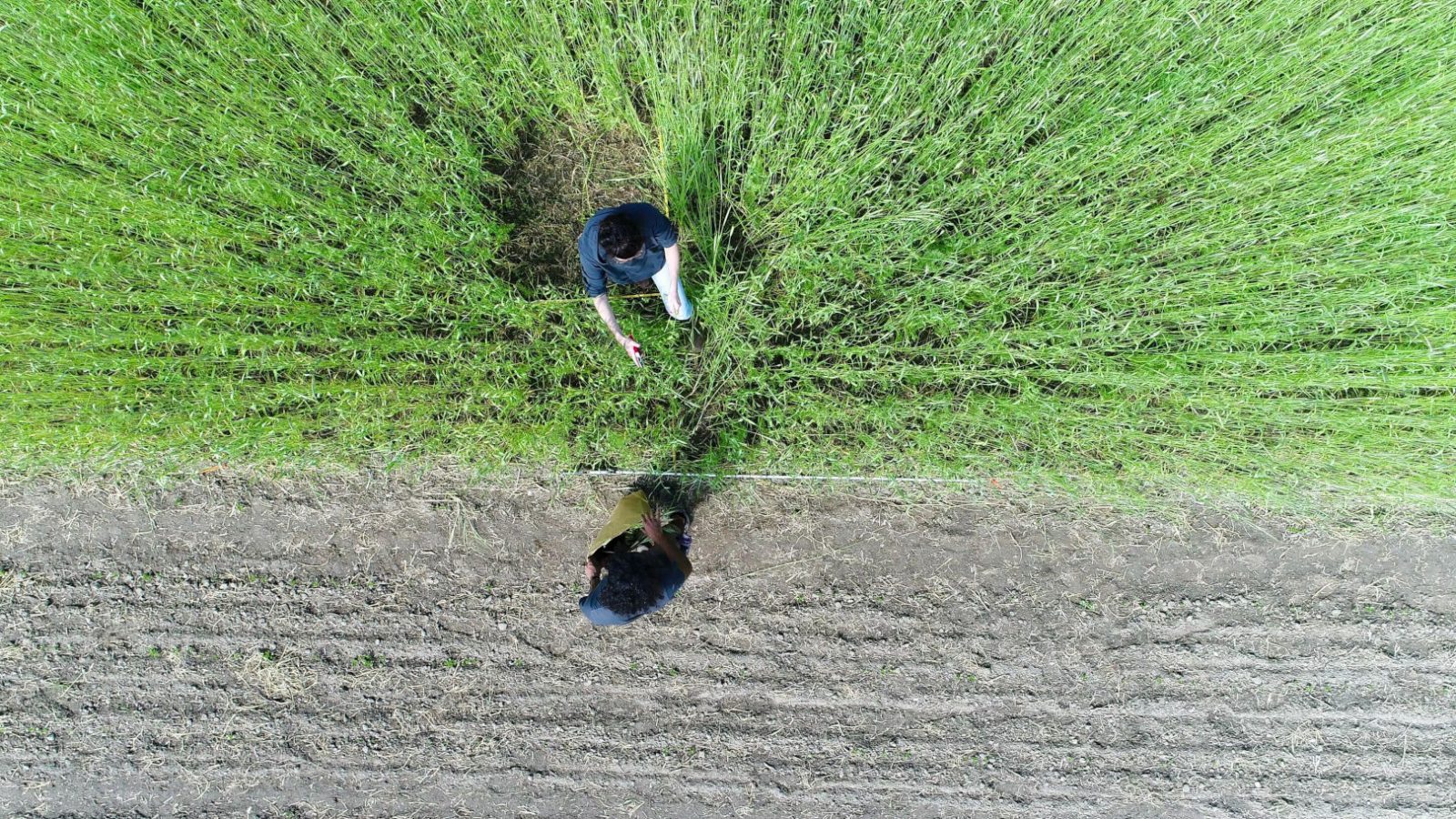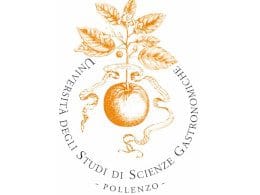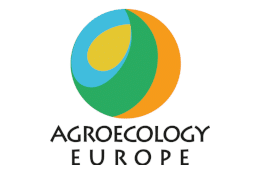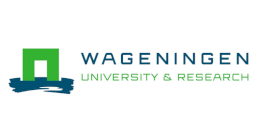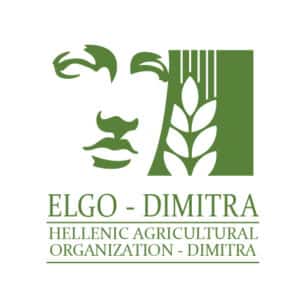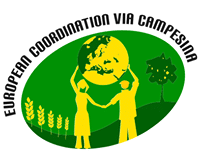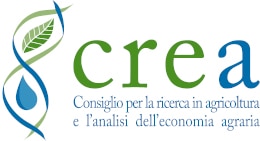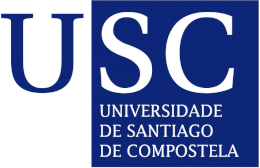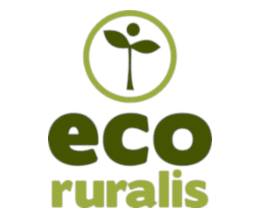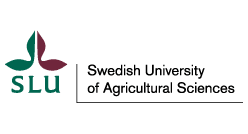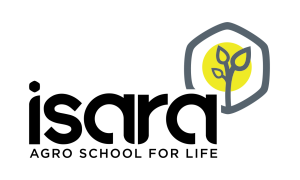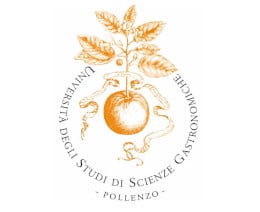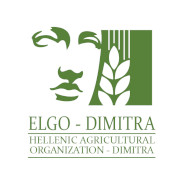The AE4EU project
Why AE4EU?
“Europe is now at a turning point regarding the future of European agriculture. Agroecology is a key concept for embracing practice, research, innovation, and education. Agroecology is essential to transform our agricultural and food system and tackle climate and nature emergencies and at the same time providing healthy food based on a strong and living rural environment. I expect the AE4EU project to have a key impact in supporting this transition.”
Dr Alexander Wezel, Director of Research at ISARA, Lyon, France
A European funded project as a coordinate and support action
AE4EU is a three years project, that started in January 2021 and aims to enable a successful transition to agroecology through a strong development with ambitious and longer-term joint actions at the European level in research, innovation, networks, training and education. Thanks to a European network and the involvement of different actors from diverse horizons and sectors, the project will analyse agroecology through its different pillars: as a science, a set of practices, and a social movement.
Read the full article about AE4EU here!
6 key objectives
1. Increase connections between relevant actors
Understanding, mapping and identifying the state of the art of agroecology in European countries as well as the actors involved is the indispensable The final goal is to establish a European Agroecology Exchange Network
2. Develop skills and methods for developing research infrastructure and living labs
Living Labs are user-centered, open innovation ecosystems based on a participatory co-creation approach including the user as well as actors from various backgrounds for integrating in real life communities and setting. The establishment of living labs, research infrastructure and agroecology-territories are key to allow a successful transition to agroecology.
3. Analyse and prepare funders for increased and complementary funding of agroecology
AE4EU will identify potential adaptations for long-term funding schemes to support enhanced cooperation and coordination of public and private national or European funders and develop recommendations for enlarged and complementary funding. Implemented elements of agroecology in public and private national or European funding schemes and their functioning will be analysed.
4. Improve human and social capital
A European Agroecology Exchange Network Hub that will include a diversity of stakeholders (such as farmers, up- and down-stream businesses, researchers, consumers and citizens) will be set up in order to facilitate knowledge exchanges in the Europe-wide network of agroecology; identify pathways of co-development and co-learning for strengthened agroecological research and innovation.
5. Improve capacity to tailor policy interventions to specific situations
AE4EU will identify and analyse policy frameworks that include elements of agroecology. Recommendations for future policies that support and promote the development of agroecology in Europe will be provided, in particular considering the context and aims of the Eco-schemes and the recently approved European Green Deal, Farm to Fork strategy and the CAP.
6. Support the development of a European partnership in agroecology
AE4EU will develop a road map and framework for a European network that includes agroecological living labs, research infrastructure and other relevant actors to build a European partnership. The overall goal is to accelerate the transition towards sustainable farming and food systems practices by promoting networking, connectivity and place-based innovation in a co-creative environment.
Work Packages
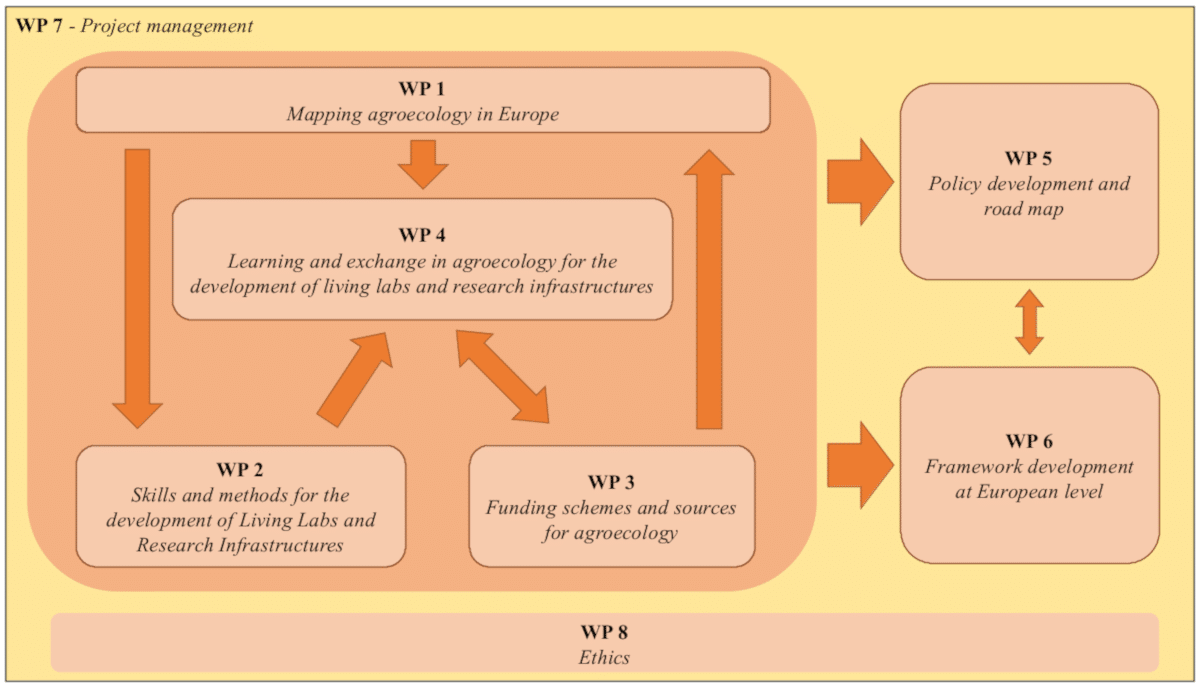

AE4EU Partners
Isara
France
ISARA is an engineering School for agricultural, food and environmental sciences, offers professional engineering programme (MSc degree), master programmes, professional learning, and carries out research and extension.
Baptiste Grard, bgrard@isara.fr
Learn more about ISARAUniversity of Gastronomic Sciences – UNISG
Italy
University of Gastronomic Sciences is an international leader for the study, research, transmission and innovative processing of knowledge in the field of Gastronomic Sciences.
Paola Migliorini
Learn more about UNISGAgroecology Europe – AEEU
Belgium
Agroecology Europe, an international non-profit organization, aims to analyse, design, develop and promote the transition towards agroecology-based farming and food systems in Europe and throughout the world.
Elena Ambuehl
Learn more about AEEUThünen-Institute – TI
Germany
As a federal research agency, the Thünen-Institute supports evidence-based agricultural policy. The Thünen-Institute is active on a broad range of topics that extend to the fields of agriculture, forestry and fisheries.
Anett Richter
Coventry University – CU
United Kingdom
Coventry University is an ambitious and innovative university in central England (United Kingdom). Its Centre for Agroecology, Water and Resilience is driving transdisciplinary research on the understanding and development of resilient food and water systems internationally.
Lindy Binder
Learn more about CU CAWRWageningen University and Research – WU
The Netherlands
Wageningen University and Research is one of Europe’s leading research institutions in the domains of Agri, Food and Life Sciences.
Andrew Dawson
Learn more about WURHellenic Agricultural Organisation DIMITRA – ELGO
Greece
ELGO – DIMITRA is the National Agricultural Research Organization of Greece with the mission to design and implement research, demonstration and pilot projects with regard to main Mediterranean crops.
Vasileios Gkisakis
Learn more about ELGOEuropean Coordination Via Campesina – ECVC
Belgium
The European Coordination Via Campesina is a European grassroots organization which currently gathers 31 national and regional farmers, farm workers and rural organizations based in 20 European countries.
Olcay Bingol
Learn more about ECVCCouncil for Agricultural Research and Economics – CREA
Italy
The Consiglio per la Ricerca e l’Analisi dell’Economia Agraria is a national research body operating under the supervision of the Italian Ministry of Agriculture, in the field of research in agriculture, agro-industry, food, fisheries and forestry.
Stefano Canali
Learn more about CREAUniversity of Santiago de Compostela – USC
Spain
The Crop Production and Engineering Project Department at the University of Santiago de Compostela has 27 staff, and the Agroforestry Research Group is one of its eight research groups.
Maria Rosa Mosquera
Learn more about USCEco Ruralis – ECO
Romania
Eco Ruralis is a national association of peasants and agroecological small-scale food producers from Romania.
Attila Szocs
Learn more about Eco RuralisSwedish University of Agricultural Sciences – SLU
Sweden
The Swedish University of Agricultural Sciences develops the understanding and sustainable use and management of biological natural resources.
Georg Carlsson
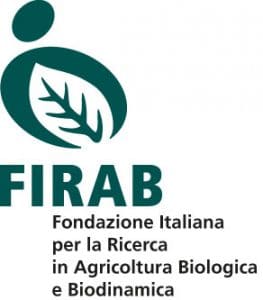
Collaborations
Italian Foundation for Research in Organic and Biodynamic Agriculture (FIRAB) was set up by organic and biodynamic farmer, environmental and labor organisations and promotes applied research in low input farming through a participatory approach and operates technical and scientific dissemination.
Related projects
Agroecology for Europe works in close collaboration with other ongoing project and especially the H2020 CSA All-Ready project.
Other ongoing/past project will support the project: LIFT, DIVERSIFOOD, ReMIX, UNISECO, TYFA, RURALIZATION, etc.

